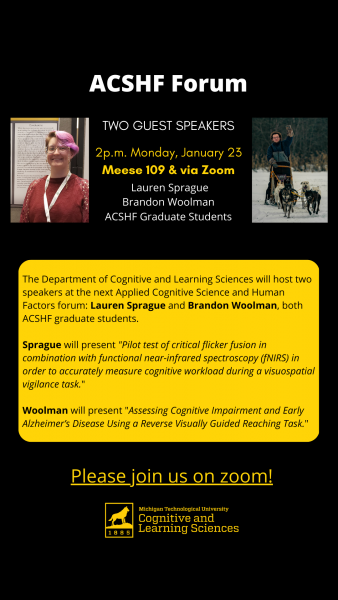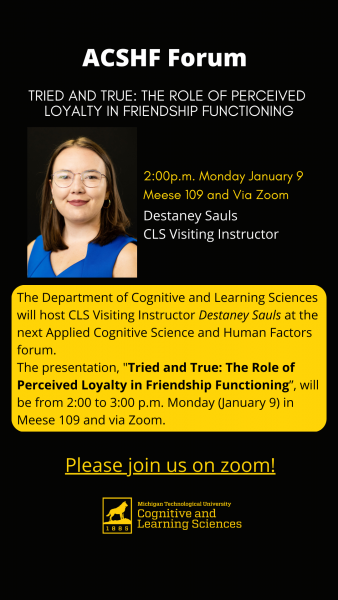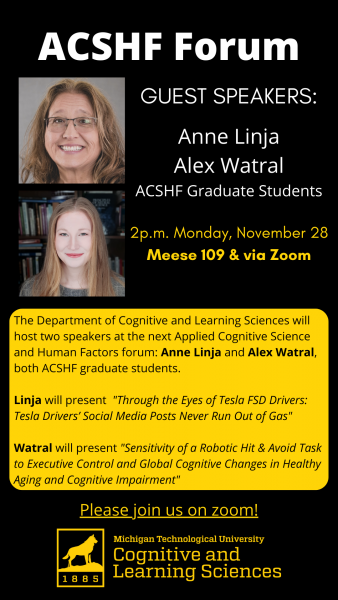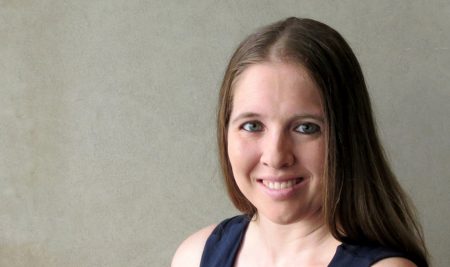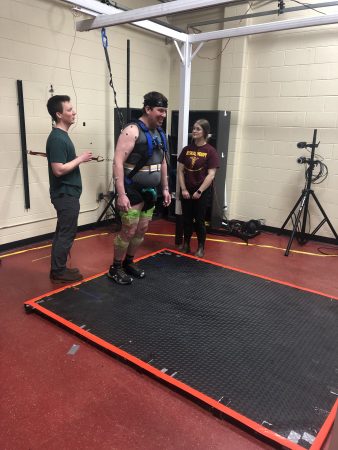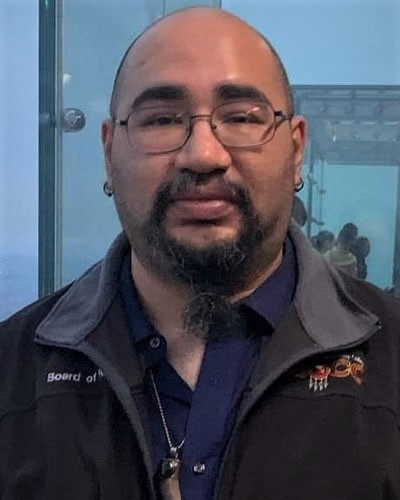The Department of Cognitive and Learning Sciences will host ACSHF PhD Students Lauren Sprague and Brandon Woolman at the next Applied Cognitive Science and Human Factors forum. Their presentations will be from 2:00 to 3:00 p.m. Monday (January 23) in Meese 109 and via Zoom.
Sprague will present “Pilot test of critical flicker fusion in combination with functional near-infrared spectroscopy (fNIRS) in order to accurately measure cognitive workload during a visuospatial vigilance task.”
Abstract:
Vigilance tasks are largely considered to be stressful to perform, difficult to stay on task, and cognitively draining due to the mental demands of sustaining attention. These tasks, which involve the monitoring of an environment for critical signals while avoiding more frequent neutral signals, induce what has been dubbed the vigilance decrement. The vigilance decrement typically involves a decline in performance as well as an increase in response time. During the investigation of this decrement, some tools need to be validated before they should be used to investigate it. Functional near-infrared spectroscopy is a non-invasive brain imaging technique that provides real-time data on changes in light absorption caused by the hemodynamic activity of the brain region in question. This hemodynamic activity provides information about cognitive effort. The flicker fusion threshold is the frequency at which an observer perceives a flickering light as static. This threshold can provide information about cortical arousal, alertness, fatigue, and cognitive workload. This study seeks to determine if these two methods, utilized alongside the NASA-TLX a measure of mental workload, can provide detailed information about the cognitive effort of a task as well as any decline in mental resources due to the mental effort of a visuospatial vigilance task.
Woolman will present “Assessing Cognitive Impairment and Early Alzheimer’s Disease Using a Reverse Visually Guided Reaching Task.”
Abstract:
Alzheimer’s Disease (AD) is the most common form of dementia, which is known for its impacts on cognitive functions, especially memory. Early signs of AD can be difficult to diagnose (Porsteinsson et al., 2021), neuropsychological test batteries designed for dementia are only moderately reliable. Recent findings in the field of motor behavior have show novel motor tasks to be sensitive to cognitive differences between younger and older adults. Some motor tasks have shown to be more sensitive to cognitive deficits compared to neuropsychological test batteries (Watral & Trewartha, 2021). For example, tasks like the visuomotor rotation task, where participants adapt to a visuomotor perturbation, have been identified as a means for assessing cognition (Buch, Young & Contreras-Vidal, 2003). Recent work by Tippet and Sergio (2006) developed a reverse visually guided reaching task (rVGR) in which participants make a series of aimed movements toward a target. During the rVGR task, the visual cursor moves in the opposite direction of the physical reach, forcing the participant to correct their movements by reversing the reaching direction. Measures of performance in this task, such as movement speed and inconsistency of movements, have been shown to change in preclinical Alzheimer’s populations (Hawkins & Sergio, 2014). The current investigation seeks to further characterize rVGR performance differences between younger adults, older adults, and individuals with early AD (diagnosed with MCI or mild AD). For this purpose, we are recruiting 20 younger adults, 20 healthy older adults, and 20 early AD patients. We are testing the prediction that participants with AD should perform similarly to the controls on a VGR task but show significant deficits on the rVGR task. Additionally, correlations will be examined between performance on a neuropsychological battery and the rVGR task performance to test the prediction that performance on the motor task are related to changes in cognition in AD. This work may provide the foundation for using motor tasks as a diagnostic tool for cognitive impairments in preclinical stages of MCI and Alzheimer’s Disease. Early diagnosis of cognitive impairments due to MCI and AD could allow physicians to maximize the effectiveness of available treatment methods for slowing the progression of the disease.
